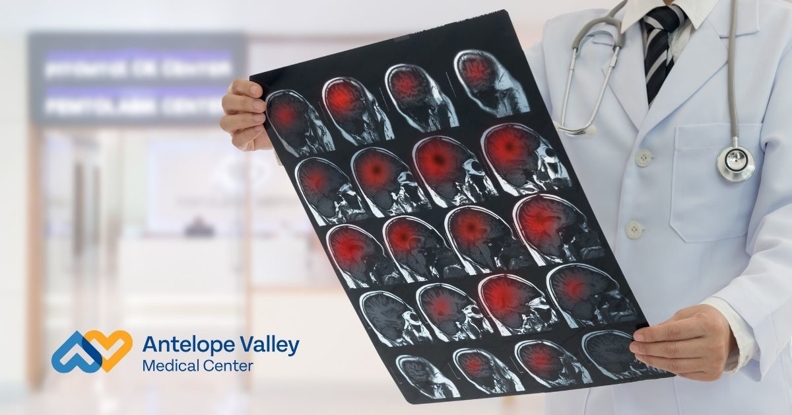Risk Factors for Having a Stroke | AVMC
- Category: Blog
- Posted On:

Understanding Your Risk of Stroke
Every 40 seconds, someone in the United States has a stroke and every 4 minutes, someone dies of a stroke. With such shockingly high statistics, it is essential that you understand your risk of experiencing this potentially fatal brain attack.
“During evaluation for a stroke, we aim to identify risk factors for ischemic stroke and treat those risk factors. Of course, there are some things you cannot change such as your age or genetics, but aggressive risk factor control is the primary treatment for both prevention of initial strokes as well as recurrent strokes,” said Dr. Hisham Salahuddin, a neurointerventionist with Antelope Valley Medical Center. “Our team will develop an individualized plan according to your risk factors to help you identify strategies to minimize your risk of future stroke. Stroke patients should always know which risk factors contributed to stroke in their case, as each stroke may be due to a combination of unique risk factors.”
Controllable Factors
Smoking & Using Tobacco
Smoking cigarettes and using tobacco products cause extensive damage to your cardiovascular system over time, increasing your risk of stroke. Nicotine and cigarette smoke raise your blood pressure and reduce the amount of oxygen that your blood can circulate. Even secondhand smoke can increase your risk for stroke.
Sedentary Behavior
Leading an inactive lifestyle also contributes to your risk of stroke and other heart-related health issues. According to th American Heart Association, the average American adult should aim to get at least 150 minutes of moderate-intensity physical activity each week.
Diet
Like most areas of your health, your diet directly impacts your cardiovascular health and your risk for stroke. Eating a diet high in the following can increase your risk for stroke and other cardiac events:
- Saturated fats
- Trans fat
- Cholesterol
- Salt
Uncontrollable Factors
Age
Age is one of the main risk factors when it comes to having a stroke with most people affected by strokes being over the age of 65. This is because as you get older, the likelihood of experiencing a stroke continues to increase.
Family History
Having a close family member who has had a stroke may mean that you’re at an increased risk of experiencing one yourself. If your parent, grandparent, or sibling has a stroke—especially before the age of 65— you are at a higher risk for having a stroke.
Gender
Statistically, women are more often affected by strokes than men. The following factors can increase a woman’s risk for having a stroke:
- Pregnancy
- Preeclampsia
- Birth control pills
- Hormone replacement therapy (HRT)
- Migraines with aura
- Atrial fibrillation
- Gestational diabetes
If you have concerns when it comes to your risk of experiencing a stroke, be sure to speak with your primary care doctor.
Acute Stroke Care in Lancaster, CA
At Antelope Valley Medical Center, we understand that patients suffering from a stroke require a quick response and accurate diagnosis in the short window following an attack. Antelope Valley Medical Center’s stroke response team has a proven track record for demonstrating extraordinary efficiency and expertise in stroke care.
With Advanced Primary Stroke Center Certification from The Joint Commission and the Los Angeles County Emergency Medical Services Agency, AVMC is committed to providing timely care to quickly treat acute stroke victims.
Call (661) 949-5000 or visit our dedicated stroke care page for more information.


.jpg)
